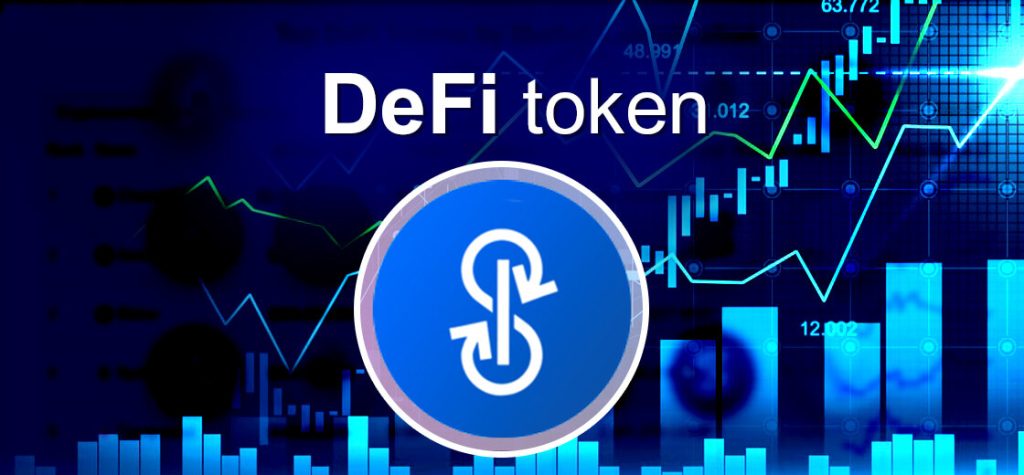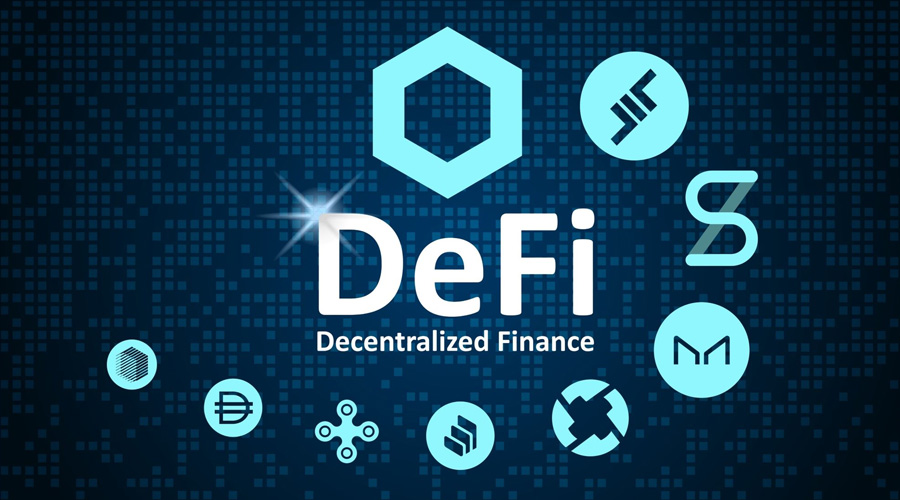In today’s digital age, decentralized finance (DeFi) has emerged as a popular avenue for investors and crypto enthusiasts to participate in various financial activities. DeFi offers opportunities to earn interest, provide liquidity, and engage in decentralized trading. However, with the rise in popularity of DeFi, the need for securing DeFi tokens and assets has become paramount. In this article, we will explore the best practices to ensure the safety of your DeFi investments and protect your hard-earned assets.
Introduction
As the DeFi space continues to evolve rapidly, it is essential to prioritize security to mitigate the risks associated with storing and managing decentralized tokens and assets. From utilizing hardware wallets to staying informed about project audits, following best practices will significantly enhance the safety of your DeFi holdings.
Understanding DeFi Tokens and Assets

Before diving into security measures, it’s crucial to have a clear understanding of DeFi tokens and assets. DeFi tokens represent digital assets that operate on decentralized networks, usually blockchain-based platforms. These tokens facilitate various financial transactions without the need for intermediaries such as banks. DeFi assets can include cryptocurrencies, stablecoins, governance tokens, and other financial instruments.
Importance of Security in DeFi
The decentralized nature of DeFi brings both opportunities and risks. While it offers greater financial freedom and transparency, it also exposes investors to potential security vulnerabilities. As DeFi platforms and protocols handle significant amounts of assets, it becomes imperative to adopt robust security practices to safeguard your investments.
Best Practices for Securing DeFi Tokens and Assets
1. Use Hardware Wallets
One of the most secure ways to store DeFi tokens and assets is by utilizing hardware wallets. Hardware wallets are physical devices designed to securely store private keys offline. By storing your private keys offline, you minimize the risk of online attacks and unauthorized access to your funds.
2. Implement Multi-factor Authentication
Enable multi-factor authentication (Multi-factor authentication (MFA) to add an extra layer of security to your DeFi accounts. MFA requires users to provide multiple forms of verification, such as a password and a unique code sent to your mobile device, to access your accounts. This helps prevent unauthorized access even if your password is compromised.
3. Be Mindful of Phishing Attempts
Be cautious of phishing attempts, where malicious actors try to trick you into revealing sensitive information. Always double-check the authenticity of websites and links before providing any personal or financial details. Avoid clicking on suspicious links and never share your private keys or seed phrases with anyone.
4. Regularly Update Wallet Software
Ensure that you regularly update your wallet software to benefit from the latest security patches and enhancements. Developers frequently release updates to address vulnerabilities and improve the overall security of the wallet. By keeping your software up to date, you minimize the risk of potential exploits.
5. Utilize Secure Networks
When accessing your DeFi accounts, use secure networks such as your home network or trusted Wi-Fi connections. Avoid using public Wi-Fi networks or unsecured internet connections, as they may expose your sensitive information to potential eavesdropping or attacks.
6. Diversify Your Investments
Diversification is a fundamental principle in investing, and it applies to the DeFi space as well. Avoid putting all your eggs in one basket by diversifying your DeFi investments across multiple projects. This strategy helps mitigate the impact of potential security breaches or project failures.
7. Conduct Due Diligence on Projects
Before investing in a DeFi project, conduct thorough due diligence. Research the project team, their track record, and the overall credibility of the project. Look for transparency, regular updates, and community engagement. By investing in reputable projects, you reduce the risk of falling victim to scams or poorly executed ventures.
8. Stay Informed about Security Audits
Stay updated on security audits conducted on DeFi projects. Security audits assess the codebase and overall security practices of a project to identify potential vulnerabilities. Prioritize projects that have undergone comprehensive audits by reputable auditing firms, as they provide an additional layer of assurance.
9. Consider Smart Contract Risks
Smart contracts power many DeFi platforms and applications. While they offer automation and efficiency, they are not immune to risks. Understand the inherent risks associated with smart contracts, such as coding bugs or vulnerabilities. Carefully review the smart contract’s code and seek external audits to minimize the chances of potential exploits.
10. Use Insurance and Risk Management Tools
Insurance and risk management tools are emerging in the DeFi space, offering added protection against potential losses. Explore insurance options specifically tailored for DeFi to safeguard your assets. Additionally, consider utilizing risk management tools and strategies to mitigate the impact of market volatility.
11. Keep Track of Token Prices and Market Trends
Stay informed about the prices and market trends of the DeFi tokens you hold. Monitor the market closely to identify any unusual activity or signs of potential security risks. Keeping track of token prices and market trends enables you to make informed decisions and take necessary actions promptly.
12. Be Cautious of Yield Farming Risks
Yield farming involves providing liquidity to DeFi protocols in exchange for rewards. While it can be lucrative, it also comes with risks. Understand the risks associated with different yield farming strategies, such as impermanent loss or smart contract vulnerabilities. Assess the risks and potential returns carefully before engaging in yield farming.
13. Secure Your Private Keys
Your private keys are the gateway to your DeFi assets. Ensure that you securely store your private keys in offline environments, such as hardware wallets or offline storage devices. Avoid storing private keys on internet-connected devices or in cloud storage, as they may be susceptible to hacking attempts.
14. Regularly Monitor Your Accounts
Stay vigilant by regularly monitoring your DeFi accounts for any suspicious activities or unauthorized transactions. Set up alerts and notifications to receive instant updates on your account balances, transactions, or any changes made to your account settings. Promptly report any anomalies to the respective platforms or exchanges.
15. Stay Vigilant and Educate Yourself
Continuously educate yourself about the latest developments, best practices, and emerging security threats in the DeFi space. Stay connected with reputable communities, forums, and newsletters to stay ahead of potential risks. Regularly review security resources and guidelines provided by DeFi platforms to enhance your knowledge and awareness.
Importance of Regularly Reviewing Smart Contracts
Smart contracts are integral to the functioning of many DeFi protocols. However, they are not infallible and may contain coding bugs or vulnerabilities. Regularly reviewing smart contracts can help identify potential security risks and ensure their integrity. Stay updated on audits and code reviews conducted by reputable firms to gain confidence in the security of the smart contracts you interact with.
Using Decentralized Exchanges (DEXs) Safely
Decentralized exchanges (DEXs) play a crucial role in the DeFi ecosystem. When utilizing DEXs, it’s essential to follow best practices to safeguard your funds. This includes verifying the authenticity of the DEX platform, double-checking contract addresses, and being cautious of fake tokens or scam projects. Additionally, consider the liquidity and trading volumes of the DEX to ensure efficient and secure transactions.
Secure Staking and Voting in DeFi Governance
Participating in DeFi governance by staking tokens or voting on proposals can be rewarding but carries inherent risks. Take precautions to secure your staked assets and ensure the legitimacy of the governance platforms. Evaluate the reputation and transparency of the projects, study the voting mechanisms, and be mindful of potential manipulation or coercion attempts within the governance ecosystem.
Understanding and Mitigating Flash Loan Risks
Flash loans have gained popularity in DeFi, offering users the ability to borrow assets without collateral. However, they also introduce unique risks to both borrowers and the overall market. Understand the intricacies of flash loans, including the importance of repaying them within a single transaction. Implement risk management strategies and be cautious of potential arbitrage attacks or market manipulation.
Importance of Secure Password Management
While DeFi security often focuses on technical aspects, it’s crucial not to overlook the importance of secure password management. Use strong, unique passwords for your DeFi accounts and consider utilizing password managers to securely store and generate passwords. Avoid reusing passwords across different platforms and enable two-factor authentication whenever possible.
Protecting Against Insider Attacks and Rug Pulls
Insider attacks and rug pulls are unfortunate realities in the DeFi space, where individuals with privileged access exploit vulnerabilities or exit scams. Research the team and individuals behind DeFi projects, assess their credibility, and be cautious of anonymous teams. Keep an eye on community discussions and red flags that may indicate potential insider threats.
Safeguarding Private Information and KYC Practices
Some DeFi platforms require Know Your Customer (KYC) processes, which involve sharing personal information. Ensure that the platforms you interact with have robust data protection measures in place. Understand the privacy policies, encryption practices, and data handling procedures to make informed decisions about sharing your personal information.
5. Conclusion
Securing DeFi tokens and assets is of utmost importance to protect your investments from potential security breaches and financial losses. By implementing best practices such as using hardware wallets, practicing multi-factor authentication, and staying informed about security audits, you can significantly enhance the safety of your DeFi holdings. Remember to diversify your investments, conduct due diligence, and stay vigilant to navigate the evolving landscape of decentralized finance successfully.






